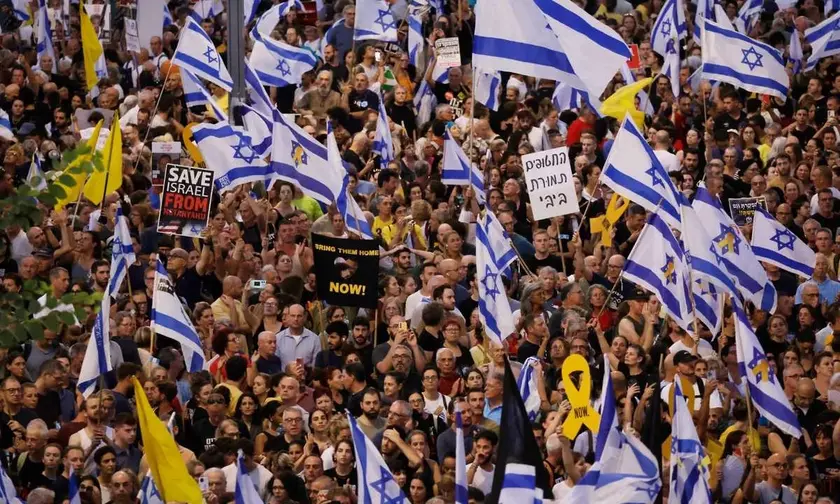Washington’s Quiet War on Netanyahu
We’ve learned from a new report that the Biden administration funneled nearly $880 million—yes, almost a billion dollars—into organizations directly or indirectly working to undermine Israel’s current government, to pressure Prime Minister Netanyahu out of office.
Why? According to sources, the administration saw him as an obstacle to their Middle East agenda. Publicly, Biden’s team claimed “ironclad” support for Israel, but behind closed doors, they were pressuring Israel to restrain its military responses in Gaza and to allow more humanitarian aid—even as Hamas continued its terror campaign.
It’s political theater. As I see it, trying to topple a democratically elected leader of an allied nation is nothing short of an act of war.
Manufactured Protests and a Dangerous Narrative

In cities like Tel Aviv, protests erupt weekly, with hundreds of participants waving high-quality printed signs and wearing coordinated t-shirts. These aren’t grassroots movements. Someone is paying for them—and now we know who. One left-wing NGO, Blue and White Future, has reportedly received millions from U.S.-based organizations funded by American taxpayer dollars.
The protests push an absurd narrative: that Israel is holding its own citizens hostage by not surrendering to Hamas. One protester claimed,
“The hostages are actually hostages of Hamas and of the Israeli government.”
Let’s be clear: The only thing keeping this war going is Hamas. If they released the hostages and laid down their arms, the conflict could end tomorrow. But they won’t. Instead, they’ve perfected the art of psychological warfare, raising hopes for a ceasefire only to crush them repeatedly.
















